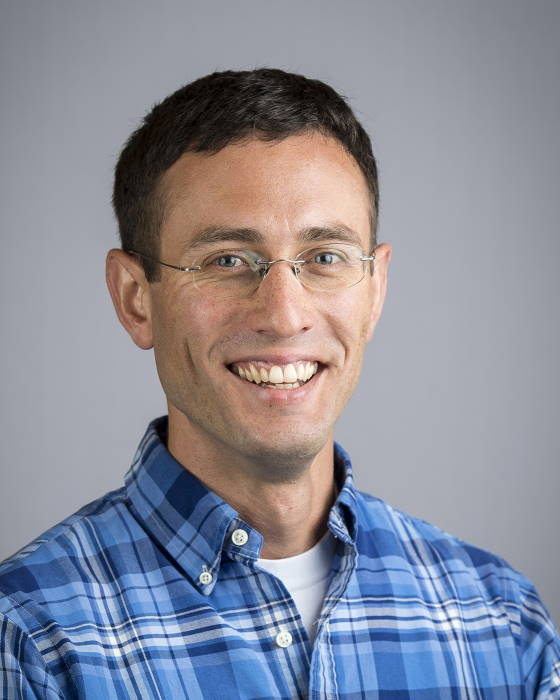Professor Adam Z. Higgins
Adam Z. Higgins, Ph.D. is Associate Professor of Bioengineering at the College of Engineering at Oregon State University.
Adam’s research focus is in biomedical process engineering, with an emphasis on biotransport. His current projects have two primary focuses:
The first is stabilization of biomedical products like biomolecules, cells, tissues, and organs, using technologies such as cryopreservation, lyophilization, and spray drying. This important research area has applications in pharmaceuticals, in vitro fertilization, cell therapy (e.g., blood transfusions), cell-based devices (e.g., biosensors), tissue engineering, and organ transplantation.
The second is high flow rate microfluidic devices for chemical blood processing, mathematical modeling, and optimization. He is exploring the advantages of microfluidics — including high surface to volume ratio, rapid diffusion, and predictive fluid flow paths — to develop highly parallelized devices for processing of blood at clinically relevant flow rates. Current applications include removal of pathogens for the treatment of sepsis and washing of blood transfusion products.
Research funding comes from the NSF, NIH, Collins Medical Trust, and the Hirsch Foundation.
Adam was awarded an NSF CAREER award in 2012 to develop microfluidic devices for cell cryopreservation. He has held various leadership roles in the Society for Cryobiology. In December of 2012, he was elected to the Board of Governors, in 2013 he was elected as treasurer, and in 2017 he was elected to serve a two-year term as president-elect followed by two years as president.
Adam earned his Bachelor’s Degree of Science in Bioengineering and his Bachelor’s Degree of Arts in International Studies from Oregon State University in 2002. For his International Studies degree, Adam spent four months in Quito, Ecuador, where he studied Spanish-language literature and conducted survey research at local hospitals. The results of this research were presented as an undergraduate thesis entitled Medical Research and the Ethics of Distribution: Nisin-treated Catheters in Ecuador and Oregon.
He earned his Ph.D. in Bioengineering in 2007 from the Georgia Institute of Technology. He conducted research on cryopreservation under the mentorship of Dr. Jens O.M. Karlsson. This work culminated in the dissertation entitled Intracellular ice formation in tissue constructs and the effects of mass transport across the cell membrane. He began as Assistant Professor in the School of Chemical, Biological and Environmental Engineering at OSU in 2008 and was promoted to Associate Professor in 2014.
Read Continuous removal of glycerol from frozen-thawed red blood cells in a microfluidic membrane device and Effects of Intercellular Junction Protein Expression on Intracellular Ice Formation in Mouse Insulinoma Cells.
In 2014, Adam was awarded an NSF grant to further develop microfluidic technology for removal of pathogens and endotoxin for the treatment of sepsis. Read Engineers develop processor to treat, prevent sepsis.
Adam has received research funding from the Cryonics Institute and was a guest speaker at CI’s 2017 AGM and Biostasis 2020 with Strategies for Reducing the Toxicity of Cryoprotectants.
Adam’s work on cryopreservation is published regularly, including:
- Effect of water content on the glass transition temperature of mixtures of sugars, polymers, and penetrating cryoprotectants in physiological buffer, 2018
- Toxicity minimized cryoprotectant addition and removal procedures for adherent endothelial cells, 2015
- Concentration dependence of the cell membrane permeability to cryoprotectant and water and implications for design of methods for post-thaw washing of human erythrocytes, 2018
- Simultaneous monitoring of different vitrification solution components permeating into tissues, 2018
- Investigating the potential for cryopreservation of human granulocytes with concentrated glycerol, 2016
- Measurement of cryoprotectant permeability in adherent endothelial cells and applications to cryopreservation, 2012
Read Analysis of solution exchange in flow chambers with applications to cell membrane permeability measurement, Protein antimicrobial barriers to bacterial adhesion: in vitro and in vivo evaluation of nisin-treated implantable materials, and Curve fitting approach for measurement of cellular osmotic properties by the electrical sensing zone method. I. Osmotically inactive volume.
Visit his LinkedIn profile, work page, lab page, and his Apollo profile. Follow him on Google Scholar, ResearchGate, Semantic Scholar, and PubFacts.
